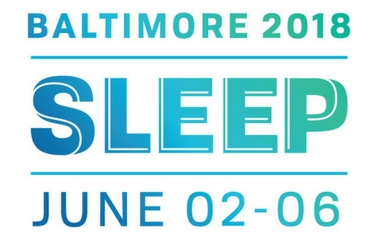BALTIMORE – Preliminary data from a recent study show high levels of emotional distress could be causing immigrants to have more sleep disorder symptoms than non-immigrants.
Migration can be a stressful experience and may lead to poor health and behavioral changes. The immigrant population in Switzerland is disproportionately burdened by several negative health outcomes, particularly mental health issues.
The aim of the study was to investigate whether sleep disturbances are more prevalent among immigrants compared to non-immigrants and whether emotional distress might explain sleep differences between immigrants and non-immigrants.
“These results contrast other authors who have postulated the opposite in Hispanic populations migrating to the United States, known as the ‘Hispanic Paradox,’” said co-principal investigator Azizi Seixas, PhD, an assistant professor of population health and psychiatry at NYU School of Medicine in New York. “It is likely that immigration is a significant stressor that can affect and compromise an individual from receiving restorative and healthy sleep.”
The study was based on the Swiss Health Survey 2012 dataset, and analyzed the data of 17,968 people, out of which 3,406 respondents were immigrants. It examined variables including disturbed sleep, emotional distress, clinical and socio-demographic data using unadjusted and adjusted generalized linear models.
Compared to non-immigrants, immigrants suffer significantly more often from trouble falling asleep, disrupted sleep, and early morning awakenings. Immigrants also endorsed higher levels of emotional distress. Higher values of emotional distress are related to more symptoms of sleep disorders. In unadjusted models, immigrants were 21 percent more likely to report sleep disturbances compared to non-immigrants.
In adjusted regression models, an immigrant with emotional distress was at significant risk for sleep disturbances. Among males, the interaction between immigrant status and emotional distress was linked to increased risk of sleep disorder symptoms. However, this interaction was not significant among females.
Sleep disturbance disparities between immigrants and non-immigrants may be influenced by emotional distress. According to the study authors, migration health care should address emotional distress, a more proximal and modifiable factor, as a possible cause of disturbed sleep in immigrants.
“Due to the current global political situation, there is a continuing immigration to Europe and specific to Switzerland. Said co-principal investigator Andres Schneeberger, MD, a psychiatrist at Psychiatric Services Grisons in Chur, Switzerland. “Health related research for these vulnerable population is crucial.”
The research abstract was published recently in an online supplement of the journal Sleep and will be presented Monday, June 4, in Baltimore at SLEEP 2018, the 32nd annual meeting of the Associated Professional Sleep Societies LLC (APSS), which is a joint venture of the American Academy of Sleep Medicine and the Sleep Research Society.
This study was supported by the following grants: NIH/NHLBI K01HL135452, NIH/NIA K07AG052685.
Abstract Title: Differences in Disturbed Sleep between Immigrants and Non-Immigrants in Switzerland attributed to Emotional Distress: Analysis of the Swiss Health Survey
Abstract ID: 0980
Presentation Date: Monday, June 4
Poster Presentation: 5 p.m. to 7 p.m., Board 246
Presenter: Azizi Seixas, PhD
For a copy of the abstract or to arrange an interview with the study author or an AASM spokesperson, please contact AASM Communications Coordinator Corinne Lederhouse at 630-737-9700, ext. 9366, or clederhouse@aasm.org.
About the American Academy of Sleep Medicine
Established in 1975, the American Academy of Sleep Medicine (AASM) improves sleep health and promotes high quality, patient-centered care through advocacy, education, strategic research, and practice standards. The AASM has a combined membership of 10,000 accredited member sleep centers and individual members, including physicians, scientists and other health care professionals. For more information about sleep and sleep disorders, including a directory of AASM-accredited member sleep centers, visit www.sleepeducation.org.









